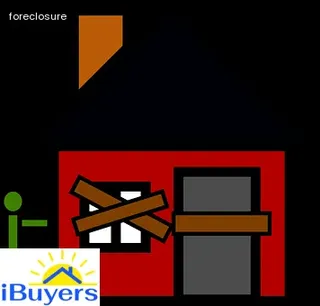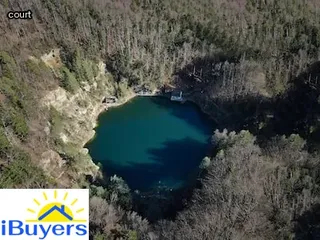Hawaii has specific laws and procedures that must be followed for a successful foreclosure. The state of Hawaii follows the judicial foreclosure process, which means that lenders must go through the court system to get permission to foreclose on a home.
The lender must first file a complaint in court, then serve the borrower with notice of the complaint. The borrower is then given a period of time in which to respond to the complaint.
If no response is received, then the lender can request a default judgment from the court granting permission to proceed with foreclosure. After obtaining permission from the court, there are various steps that must be completed before a home can be sold at auction.
This includes advertising the sale and giving public notice of when and where it will occur. In general, if all of these steps are followed properly, it can take approximately four months or longer for a foreclosure to be completed in Hawaii.

In Hawaii, foreclosures can happen either non-judicially or judicially depending on the situation. Non-judicially means that the lender does not need to go to court, while judicially requires a court process and foreclosure order from a judge.
Non-judicial foreclosures are done through a private trustee appointed by the lender who will oversee the sale of the property at auction. On the other hand, judicial foreclosures involve bringing a case against the borrower in court where they are given an opportunity to defend themselves and explain why they cannot pay back their loan.
The court will then decide how to proceed with foreclosure proceedings, which usually include setting up an auction for selling off the property. Although it may take longer due to the involvement of courts, judicial foreclosures are often preferred as they allow borrowers more time to settle their debts or find alternative solutions before losing their home.
In Hawaii, a foreclosure can only be initiated after certain notices have been issued. The first notice is a Notice of Default and Right to Cure, which must state the amount of debt that’s in default, the date by which it must be cured, and information on how to cure the debt.
A Notice of Foreclosure Sale is then sent to the mortgagor at least 21 days before the foreclosure sale is scheduled. This notice includes important information such as the name and address of the mortgagee initiating the sale, details about when and where it will take place, and instructions on how to redeem or reinstate their mortgage loan.
It also explains how to contact a housing counselor if they need help understanding their options. Lastly, a third notice must be delivered no less than 14 days prior to the foreclosure sale date.
This notice serves as a reminder of all relevant details about the upcoming sale. All three notices are required for any type of foreclosure in Hawaii according to state laws and procedures.

When it comes to foreclosing on a property in Hawaii, potential bidders should be aware of the laws and procedures governing the process. The foreclosure auction process in Hawaii is initiated when a lender files a complaint with the court, seeking permission to sell the mortgaged property.
After that, the borrower is served with a summons and complaint, which gives them 20 days to respond. If they fail to do so or if their response is inadequate, the court will enter a default judgment against the borrower.
This means that the lender can proceed with the foreclosure auction without further court action. Before the auction can take place however, notice must be given to all interested parties via publication in a qualified newspaper for four consecutive weeks.
On auction day, registered bidders are allowed to inspect and bid on properties up for foreclosure. The winning bidder pays their bid amount as well as back taxes and other fees associated with the sale.
The money from this sale goes towards paying off any remaining debt associated with the property before ownership is transferred over to them.
The process of foreclosure in Hawaii has certain steps and procedures that must be followed in order for it to be successful. The first step is to send a notice of intent to the homeowner, which includes details of the loan delinquency, a warning that foreclosure proceedings will begin if payment is not made, and information on how the homeowner can reinstate the loan.
After this, lenders must file a complaint with the court and provide the homeowner with legal notice. The homeowner then has 21 days to respond by either paying off the debt or filing an answer in court.
If no action is taken within this time period, the lender can request a default judgment from the court. Once this judgment is granted, a writ of possession is issued to allow for eviction.
This writ gives law enforcement officials authority to remove occupants from the property and requires them to leave all personal belongings behind. If necessary, law enforcement may also physically remove any occupants who have refused to vacate after being given notice.

Exploring alternatives to a traditional mortgage payment plan is an important consideration for anyone facing foreclosure in Hawaii. Understanding the length of time a foreclosure can take and familiarizing oneself with Hawaii foreclosure laws and procedures can allow homeowners to make informed decisions about their options.
Examples of alternatives to a traditional mortgage payment plan include loan modification, refinancing, forbearance, or short sale. Loan modification is when the lender agrees to modify the terms of a loan, such as interest rate, repayment period, or principal balance.
Refinancing involves obtaining a new loan with different terms while keeping the original loan in place. A forbearance allows the homeowner to temporarily stop making payments or reduce monthly payments while they regain financial stability.
Finally, a short sale occurs when the homeowner sells the property for less than what is owed on their mortgage. Taking advantage of these alternative solutions can help avoid foreclosure and keep homeowners in their homes longer.
When it comes to foreclosure in the state of Hawaii, borrowers have the right to redeem their property. This means that they are allowed to reclaim their mortgaged property if they can repay their debt within a given amount of time.
The length of this redemption period varies depending on the type of loan and the circumstances surrounding the foreclosure. Additionally, Hawaii also has a number of laws and procedures relating to foreclosure that homeowners should familiarize themselves with before entering into any type of real estate transaction.
It is important for borrowers to understand all aspects of these laws and regulations so that they can better protect their rights if foreclosure does occur. Knowing your rights when it comes to redeeming your property can make all the difference when it comes to navigating the potential pitfalls associated with foreclosure in Hawaii.

Navigating pre-foreclosure options available in Hawaii is important for any homeowner dealing with financial hardship. Hawaii has foreclosure laws that are different from other states, so it's important to understand the options available before beginning the process.
In order to avoid foreclosure, homeowners in Hawaii can contact their lender and sign a forbearance agreement, establish a repayment plan or declare bankruptcy. The best option for a homeowner depends on their individual circumstances, such as income level and current debt.
It is also possible to qualify for state or federal programs that provide assistance if certain qualifications are met. A homeowner should be aware that once the foreclosure process has started, it can take anywhere from six months to a year in order to complete the process and have their home foreclosed on by the lender.
Knowing all of one’s options and understanding the time frame involved in the foreclosure process can help them make an informed decision about how to proceed.
During a foreclosure, homeowners in Hawaii have the opportunity to reinstate or redeem their home. Reinstatement is when the homeowner pays the full amount of past due payments and any associated fees that have accrued since the mortgage became delinquent.
Redemption gives homeowners the chance to pay off the entire loan balance, including any additional costs incurred by the lender, such as court and foreclosure fees. In both cases, it is important for homeowners to be aware of their rights under Hawaii law and to act quickly in order to exercise them.
Depending on how far along in the process a foreclosure is, reinstatement and redemption may still be available options for saving a home from foreclosure. Homeowners should explore all possible paths with their lender or an attorney with experience in Hawaii foreclosures before making any decisions regarding their property.

When assessing potential tax consequences from a foreclosed property in Hawaii, it is important to understand the foreclosure laws and procedures for this state. Federal income tax law requires that if a lender forgives a debt due to a foreclosure, then the amount of debt that was forgiven must be reported as taxable income.
In Hawaii, the foreclosure process can take anywhere from 90-180 days depending on whether the case is contested and if all of the paperwork has been filed correctly. It is also important to note that when a home is foreclosed upon, any outstanding mortgage balance may become taxable income even though no cash was actually received.
This means that it is essential to consult with an experienced real estate attorney who can provide guidance on how to minimize or avoid any potential tax liabilities associated with a foreclosed property in Hawaii.
Loss mitigation programs are an important part of the foreclosure process, allowing borrowers to remain in their homes or have a more attractive outcome than foreclosure for themselves and the lender. In Hawaii, loss mitigation programs may be available to borrowers facing foreclosure, depending on their particular circumstances.
Borrowers should understand their rights and options before beginning the foreclosure process. For example, under Hawaii law, lenders must provide homeowners with written notice of default and at least 30 days to cure their delinquency prior to initiating foreclosure proceedings; this is known as pre-foreclosure mediation.
Additionally, lenders must consider any loss mitigation program offered by the borrower if it complies with certain requirements. This could include loan modifications that reduce payments or extend the term of the loan; forbearance agreements that temporarily postpone payments; deed-in-lieu of foreclosure, where a homeowner voluntarily transfers ownership back to the lender; or repayment plans that allow borrowers to make up missed payments over time.
Knowing what options are available can help homeowners assess whether they can save their home from foreclosure or take other steps to mitigate losses associated with it.

When it comes to foreclosures in Hawaii, the timeline for a typical foreclosure can vary depending on the particular circumstances of each case. Generally, however, it is important to understand that the process can take several months from start to finish.
In most cases, lenders will require borrowers to be delinquent on payments for at least 90 days before they are able to file a Notice of Default with the court system. Once this notice has been filed, the homeowner has an additional 120 days before the lender is legally allowed to move forward with a foreclosure sale.
In some cases, lenders may choose to pursue other options such as loan modifications or short sales prior to filing a Notice of Default or before proceeding with a foreclosure sale. It is important for potential home buyers looking into properties in Hawaii that have gone through a foreclosure process to understand all applicable laws and procedures related to these transactions.
In Hawaii, a deficiency judgement for a foreclosure can be applied if the proceeds from the sale of the property are not enough to cover the outstanding mortgage balance. The court may grant permission for a lender to pursue a deficiency judgement if it is deemed appropriate in a particular case.
Property owners who face foreclosure should investigate all possible outcomes and determine whether they may be subject to a deficiency judgement. When filing documents with the court, lenders must provide proof of their right to pursue such an action, as well as evidence that supports the amount of money they are seeking.
It is important to understand that any deficiency judgement will remain part of your credit report until it is paid off in full, so it is important to take steps to pay off or negotiate with your creditor as soon as possible. Additionally, speaking with an experienced real estate lawyer will help you better understand and prepare for any potential legal actions relating to a foreclosure in Hawaii.

Filing for bankruptcy can have a significant impact on the foreclosure process in Hawaii. Depending on the type of bankruptcy you file, it may temporarily stop or pause the foreclosure proceedings, allowing you more time to explore other options.
Additionally, filing for bankruptcy can reduce your mortgage debt, making it easier to keep up with payments and avoid foreclosure. However, if you are unable to make payments or otherwise come up with an alternative solution, the lender can still proceed with foreclosure after the bankruptcy is dismissed or discharged.
It is important to understand how filing for bankruptcy will affect your particular situation so that you are best prepared when navigating through a foreclosure in Hawaii.
In Hawaii, foreclosure proceedings typically take a minimum of three months. However, special assets such as boats, cars, or other personal belongings can significantly affect the auction sale result.
Depending on the nature of the asset and its value, different procedures for securing it must be taken. For instance, if the item is a car and it has a lien against it from a loan or other debt that was not included in the original foreclosure documents then the lien holder has to agree to release the vehicle before it can be auctioned off.
Additionally, if there are any restrictions on the asset that do not appear in court records then all parties must adhere to them before an adequate sale result can be achieved. When special assets are involved in foreclosure proceedings in Hawaii, an experienced real estate lawyer should always be consulted to ensure all necessary steps are taken correctly and legally.

Hawaii foreclosure laws and procedures provide an important resource for homebuyers looking to purchase a foreclosed property in Hawaii. When a lender forecloses on a property, there are often excess funds remaining after the sale.
The legal process of determining what happens to that money is known as "excess funds disposition." In Hawaii, lenders must follow specific protocols for disposing of these funds.
After the sale of the property, the lender must submit a petition to the Circuit Court outlining how much money is left over and listing all possible creditors who are owed money from the sale. The court will then review any objections raised by potential creditors and issue a final order regarding how the excess funds should be distributed.
If no objections have been raised, the court will typically award these excess funds back to the original mortgagor or their estate. It is important to understand this process if you are considering buying a foreclosed property in Hawaii as it can impact how much money you walk away with at closing.
Foreclosure is a legal process used by lenders to recover the balance of money owed on a loan when a borrower fails to make payments. In the state of Hawaii, foreclosures typically take two to three months from start to finish. The exact amount of time it takes for a foreclosure to be completed can vary depending on the specific circumstances and property in question.
A better understanding of Hawaii's foreclosure laws and procedures will provide borrowers with helpful information about how long a foreclosure might take in their particular situation. The first step in the Hawaiian foreclosure process is for the lender to file a Notice of Mortgage Default with the Bureau of Conveyances and record it in the county where your property is located. This notice must include certain information, like your contact details as well as an itemized list of all amounts due under your mortgage loan agreement.
Once filed, this notice will provide you with 20 days' notice before any further action can be taken on the foreclosure. After the 20-day period has passed, if you have not made up any past due payments or entered into an agreed-upon payment plan, then the lender may move forward with filing a Complaint for Foreclosure with the court. At this stage, you may also receive notification that your property has been posted for sale at public auction which is usually scheduled within 45 days of filing.
It is important to note that during this entire process, you can still work out an alternative solution with your lender such as entering into an agreed-upon repayment plan or paying off some or all past due amounts. If either one of these options are pursued, then your lender may decide to cancel proceedings and avoid having to go through with the foreclosure altogether. In summary, while foreclosures typically take two to three months from start to finish in Hawaii, there are many ways that borrowers can potentially avoid having their house foreclosed upon by engaging in negotiations with their lenders and exploring alternative solutions available to them under Hawaii's real estate laws and procedures.

Foreclosure is a legal process used by mortgage lenders to recover the amount owed on a defaulted loan. In Hawaii, it's important to understand how foreclosures work and what laws and procedures are in place regarding foreclosures.
The process of foreclosure typically begins when a homeowner defaults on their mortgage payments and the lender files a complaint with the court, asking for a judgment of foreclosure. The court then issues a summons that notifies the homeowner of their default on the loan.
Once this happens, the homeowner has 20 days from receipt of the summons to respond to the complaint. If no response is received within that time frame, or if an agreement isn’t reached between the lender and borrower, then foreclosure proceedings will begin.
These proceedings can take anywhere from six months to more than a year depending on whether or not there are any objections from either party. During this time, it’s important for homeowners to be aware of their rights under Hawaiian law and make sure they comply with all of them so as not to further delay or complicate the process.
Ultimately, understanding how foreclosures work in Hawaii can help homeowners prepare for potential challenges along the way and better navigate through any foreclosure process they may face.
If you're dealing with a foreclosure in Hawaii, it's important to know how to stop it. Fortunately, the state of Hawaii has a number of laws and procedures in place that can help you avoid or delay the foreclosure process.
One of the most effective methods is filing for bankruptcy protection. This allows you to delay the foreclosure action while you work on restructuring your debt.
In some cases, bankruptcy may even be able to eliminate some of your debt permanently. Another way to stop a foreclosure is to negotiate with your lender and seek out an alternate solution such as loan modification or forbearance.
These options allow you to reduce or suspend payments while you work out a payment plan with your lender that fits within your budget. Finally, if all else fails, selling your home quickly can also help you avoid foreclosure.
A real estate agent familiar with Hawaii's foreclosure laws and procedures can guide you through this difficult period and help keep your home from being foreclosed upon.
When it comes to Hawaii foreclosure laws, the amount of time it takes for a homeowner to enter foreclosure depends on how many months behind they are on their mortgage payments. Generally, borrowers must be at least three months late in their payments before they are considered in default and the lender can begin the foreclosure process.
After the borrower goes into default, the lender will send a notice of default, which typically gives them 30 days to make up their missed payments or face foreclosure. If payment is not made within that timeframe, the lender may file a complaint with the court system and initiate foreclosure proceedings.
At this point, it can take anywhere from two months to six months for the entire process to finish.
Yes, there is a foreclosure redemption period in Hawaii. Under Hawaii's foreclosure laws, lenders are required to provide borrowers with a certain amount of time to redeem their property after the foreclosure sale.
The redemption period typically lasts for three months and begins when the foreclosure sale is completed. During this period, borrowers may use their own funds or those provided by family or friends to pay off all costs associated with the sale and reinstate their mortgage loan.
In some cases, the lender may offer a repayment plan that allows borrowers to pay off all costs over an extended period of time. Borrowers should be aware that even if they are able to successfully redeem their property during this time, they may still be responsible for any remaining debt that remains on the loan at the time of redemption.
Hawaii has one of the longest foreclosure processes in the country, according to real estate experts. The average time it takes to complete a foreclosure can range anywhere from 6 months and up, depending on the specific regulations and procedures of each state.
When it comes to Hawaii's foreclosure laws, there are certain steps that need to be followed in order for a lender to legally foreclose on a property. First, lenders must file a complaint with the court and provide notice of default to the borrower.
Following this, they must wait up to 120 days before proceeding with the foreclosure process if the borrower fails to make payments or contact their lender. This means that a foreclosure in Hawaii could take as long as seven months or more before it is finalized.
Additionally, borrowers may be able to negotiate other arrangements with their lender such as loan modifications or deed-in-lieu of foreclosure agreements during this period. It is important for borrowers facing foreclosure in Hawaii to understand their rights and obligations under Hawaii's real estate laws so that they can take the necessary steps to protect themselves throughout the process.